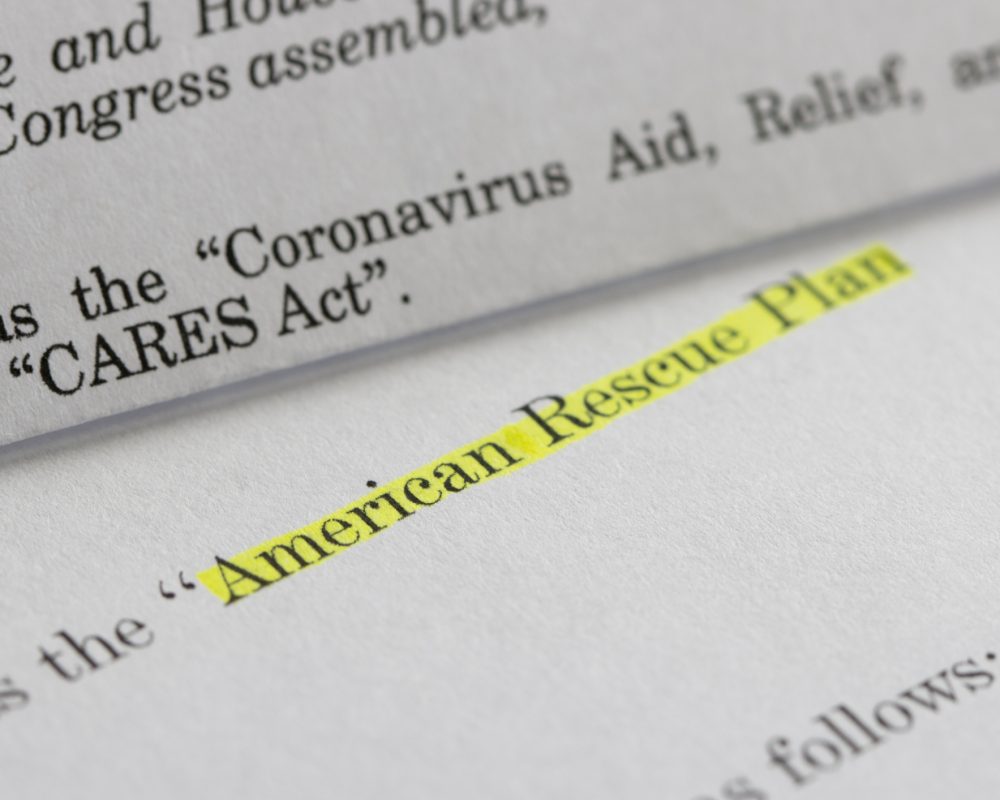
A provision of the American Rescue Plan (ARP) Act passed in March can help home visiting programs support families recovering from the COVID-19 pandemic—especially those in hard-hit Black, Latinx, and Native American communities. Among the allocations within the $1.9 trillion economic stimulus package is $150 million for the Maternal, Infant, and Early Childhood Home Visiting Program (MIECHV) to help stabilize families and communities most affected by the pandemic. The amount represents a 40 percent increase in program funds to support the emergency needs of families and the well-being and training of the home visiting workforce.
How will funds be distributed?
MIECHV ARP awards will be distributed to U.S. states and territories based on a formula approach consisting of base funding proportional to their FY 2020 award amount and need funding based on the proportion of COVID-19 cases and children under 5 years old living in poverty. Funds must be spent by September 30, 2023.
So far, the Health Resources and Services Administration (HRSA) has awarded nearly $40 million in ARP funds to 56 MIECHV awardees. All current MIECHV awardees are eligible, provided that home visiting programs —
- Do not reduce funding to local agencies or decrease staffing levels because of low enrollment (unless the state reports a need to shift funding across the state)
- Focus on serving MIECHV priority populations in communities identified in the most recently approved statewide needs assessment
- Coordinate with local diaper banks to the extent possible (see below)
Diaper needs: Having enough clean diapers to keep infants dry is a widespread issue worsened for many by the COVID-19 pandemic. Diaper need can have detrimental effects on child health and development, as well as parental emotional and economic well-being. Diapers are not an allowable expense under most social assistance programs, including the Special Supplemental Nutrition Program for Women, Infant, and Children; for the first time, ARP allows home visitors to use federal MIECHV dollars to distribute diapers to families through coordination with local diaper banks.
How can funds be used?
MIECHV ARP awards can cover costs excluded from traditional MIECHV awards and help programs tackle pressing problems caused by the pandemic. The seven categories of allowable uses include service delivery costs, hazard pay and other staff costs, home visitor training, technology, emergency supplies, diaper bank coordination, and prepaid grocery cards. Below are key ways that home visiting programs can use funds to directly benefit families and home visiting professionals.
1. Expand services and provide continued support to enrolled families
- Home visiting services: Funds can offset the costs of virtual and in-person visits, services provided to make up for missed visits during the pandemic, and the expansion of services to new families and communities identified in the most recent needs assessment.
- Technology: Programs can alleviate families’ accessibility concerns by using ARP awards to provide technology for virtual visits (e.g., tablets, mobile hotspots, cell phones, other devices).
- Emergency supplies: Programs can use funds to purchase emergency supplies for eligible families, including formula, face masks, personal protective equipment, hand soap, hand sanitizer, food, water, and diapers.
- Prepaid grocery cards: Eligible families can use program-provided cards to meet their emergency grocery needs.
2. Support the well-being and preparation of the home visiting workforce
- Additional compensation and other staff costs: Programs can offer hazard pay, monetary incentives, or overtime pay to compensate staff providing home visits and administering MIECHV programs. ARP funds can also cover staff time related to service expansion (e.g., planning, hiring, onboarding additional staff).
- Training supports: ARP awards can be used to cover training costs for home visitors supported by MIECHV around such topics as virtual home visits, intimate partner violence screening, and emergency preparedness and response planning for families.
MIECHV awardees can choose how to use ARP funds. For instance, they can focus resources on one allowable category to help tackle a single issue, or across multiple categories depending on the identified needs of local families and communities. Regardless of awardees’ approach, HRSA encourages them to promote equity by allocating funds to communities most affected by the COVID-19 pandemic.